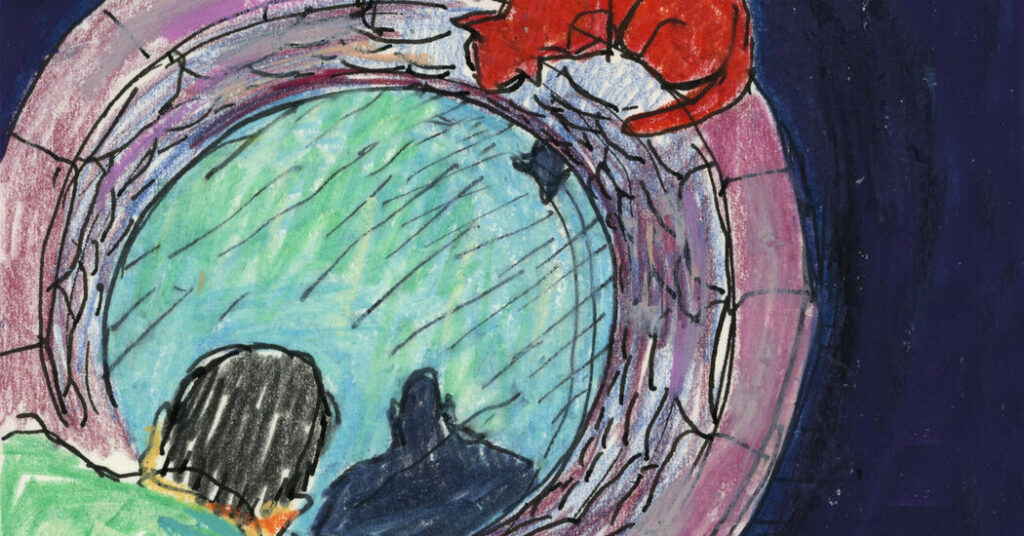Take a moment to reflect. That’s generally good advice. “For Once, Then, Something” is a reflection on reflecting — on looking and thinking — that teases the double meaning of the word without using it once.
His most familiar poems — “Stopping by Woods on a Snowy Evening,” “Mending Wall” and of course “The Road Not Taken” — seem to pluck worldly wisdom out of the chilly air. He has a reputation for homespun common sense, offered in reassuringly simple forms.
But Frost, who attended Harvard, lived for a time in England and taught for many years at Amherst College, was hardly an unpolished rustic bard. “I choose to be a plain New Hampshire farmer,” he writes in “New Hampshire,” “With an income in cash of, say, a thousand / (From, say, a publisher in New York City).”
Nor was he a postcard poet, soothing readers with picturesque scenery. Frost’s pastoral landscapes are haunted by loss and shadowed by anxiety, doubt and dread. “The Road Not Taken” is more about ambivalence than self-reliance. His skepticism — about politics, religion, other people — trips over a faith that lies like a half-buried stone in his path. What is that man doing at the well? He could be praying.
Frost’s folksy conversational style is more complex than it seems. Here he’s drawing on two Classical Latin poets: Catullus, who specialized in those 11-syllable lines, and Ovid, who gave him his theme.
“For Once, Then, Something,” is transparently about narcissism, a word that Freud and other theorists of human psychology began to use in the early 20th century. They borrowed the term from Book 3 of Ovid’s “Metamorphoses,” which tells the story of Narcissus, a young man who falls in love with his own reflection.
Frost’s well is a modern version of Narcissus’ pool, and his poem is a meditation on self-absorption and its limits. At the beginning, he’s tuning out the world, admiring the way the elements — sky, water, air — combine to give him back a picture of himself. Then something comes along to spoil the picture.
Something, or someone? In Ovid’s poem, Narcissus is loved by a nymph, whose name is Echo.
The poem isn’t all about him. It’s about us, too. Isn’t that something?
Listen to A.O. Scott read the poem.
FOR ONCE, THEN, SOMETHING by Robert Frost
For Once, Then, Something
Others taunt me with having knelt at well–curbs
Always wrong to the light, so never seeing
Deeper down in the well than where the water
Gives me back in a shining surface picture
Me myself in the summer heaven, godlike,
Looking out of a wreath of fern and cloud puffs.
Once, when trying with chin against a well–curb,
I discerned, as I thought, beyond the picture,
Through the picture, a something white, uncertain,
Something more of the depths—and then I lost it.
Water came to rebuke the too clear water.
One drop fell from a fern, and lo, a ripple
Shook whatever it was lay there at bottom,
Blurred it, blotted it out. What was that whiteness?
Truth? A pebble of quartz? For once, then, something.


